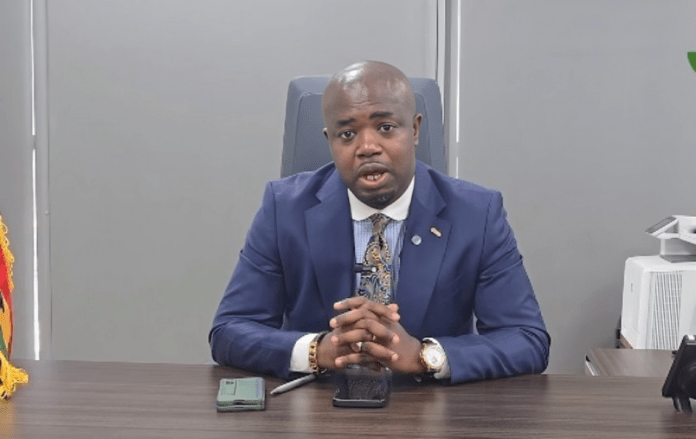By Ernest Bako WUBONTO
The downstream petroleum sector is grappling with an annual demurrage cost of US$35million, imposing a significant financial burden according to THE Chief Executive Officer-National Petroleum Authority (NPA), Godwin Edudzi Tamaklo.
Speaking at the Downstream Dialogue 2025 organised by the Chamber of Oil Marketing Companies (COMAC) under the theme ‘Ghana’s downstream oil and gas sector: challenges and opportunities’, Mr. Tamaklo said there is an urgent need to enhance efficiency at the country’s ports to mitigate the rising demurrage costs.
The regulator noted that demurrage costs – resulting from delays in unloading petroleum products at ports – are ultimately passed on to consumers, contributing to higher fuel prices.
“This issue requires urgent attention because these companies inevitably pass the cost on to consumers, contributing to rising fuel prices,” Mr. Tamaklo stated.
Inefficiencies at the ports – including delays in documentation, vessel scheduling and cargo clearance – are the primary drivers of demurrage charges.
The CEO reaffirmed NPA’s commitment to tackling the issue, noting that improving port efficiency is crucial for smooth operation of the downstream petroleum sector.
“We are collaborating with relevant stakeholders to streamline port processes and reduce these unnecessary costs. This will not only benefit the industry but also ease the financial burden on consumers,” he added.
The downstream petroleum sector is crucial to the economy, ensuring supply and distribution of fuel nationwide. However, challenges such as high operational costs, regulatory hurdles and port inefficiencies continue to hamper its growth.
COMAC
Chief Executive Officer of the Chamber, Dr. Riverson Oppong, stressed that financing remains a major challenge for businesses within the downstream sector, hence a need to explore the intersection between industry and banking collaboration.
“Unlocking financing and investment opportunities is essential to enhancing liquidity, fostering expansion and ensuring the long-term viability of our sector. We will engage financial institutions and consultants to develop innovative funding mechanisms tailored to the needs of our industry players,” he said.
He further urged that the industry shift focus to investments in renewable energy, adoption of e-mobility and regulatory reforms for sustainability as the world moves toward cleaner energy alternatives.
“It is imperative that we assess the challenges and opportunities presented by this shift. We must carefully examine it to ensure a balanced and strategic transition that ensures our energy demands are met and safeguards jobs as we commit to environmental stewardship,” he added.
The Chamber of Oil Marketing Companies (COMAC) also emphasised the need for policy reforms to create a more conducive environment for businesses in the downstream sector.
Stakeholders and industry players at the downstream dialogue made actionable recommendations – including the adoption of digital solutions to streamline port operations, improved coordination among regulatory agencies and increased investment in port infrastructure.
The two-day event is set to foster constructive discussions among policymakers, regulators, oil marketers and industry experts.
Stakeholders are expected to share insights, engage in meaningful dialogue and explore solutions to the most pressing challenges facing our sector.
COMAC believes that constructive dialogue is the cornerstone of progress, hence it hopes to explore actionable strategies to not only overcome these challenges but also unlock new avenues for growth and sustainable development.










